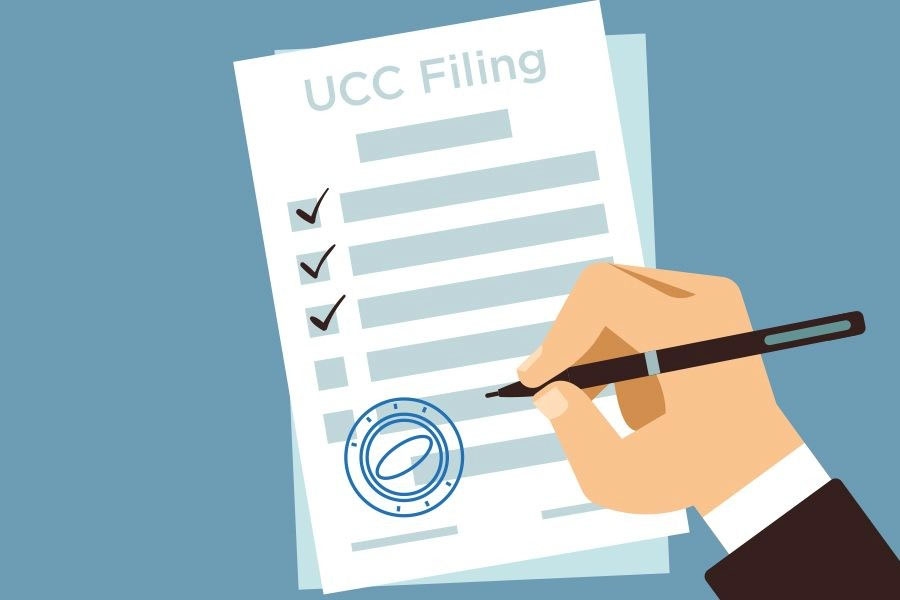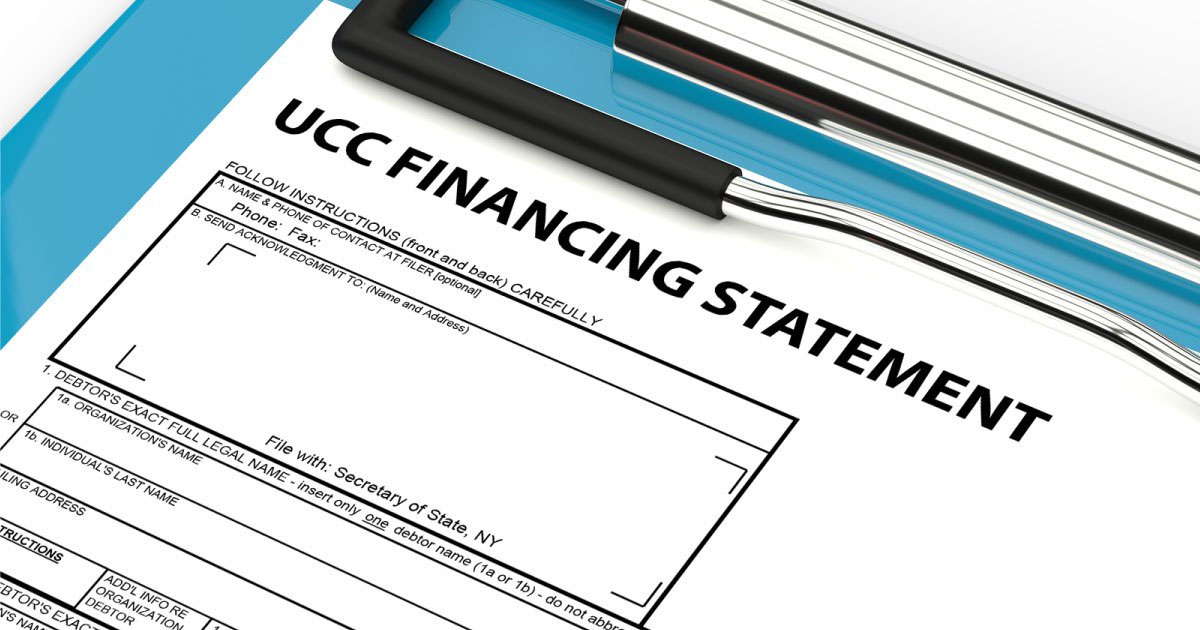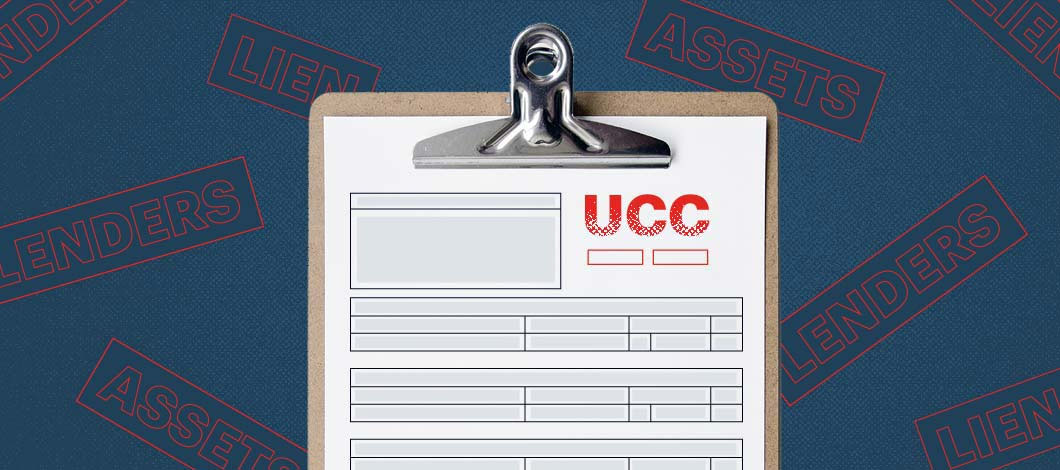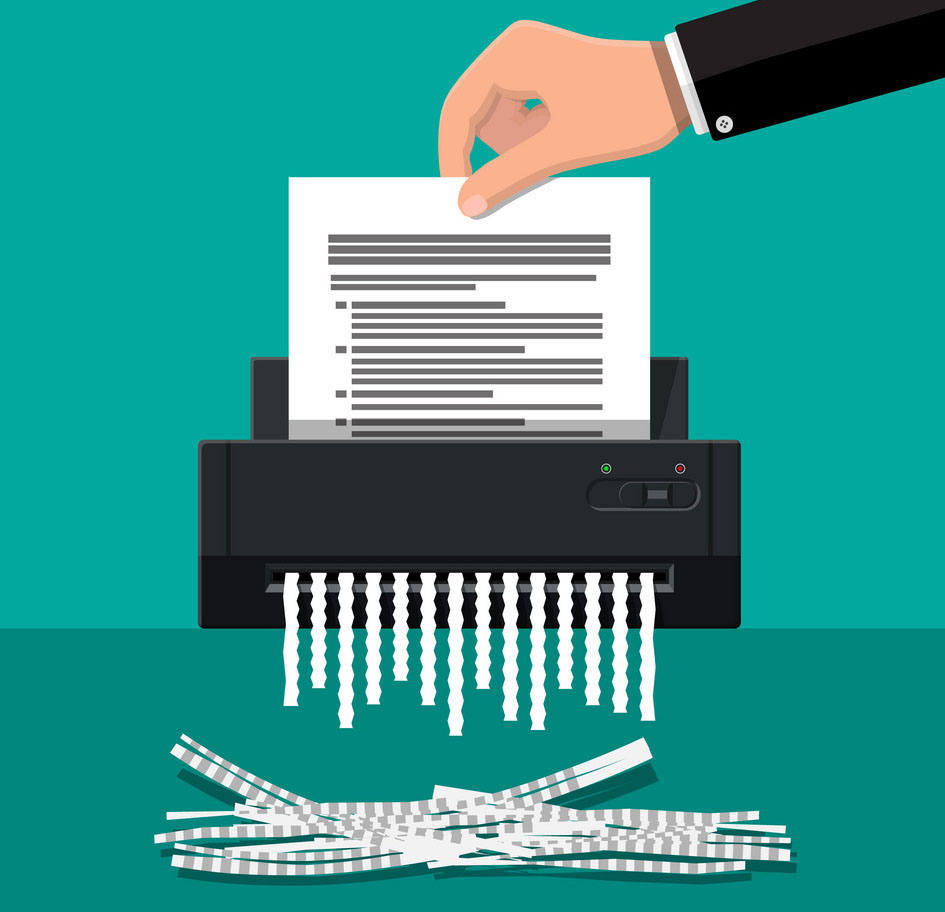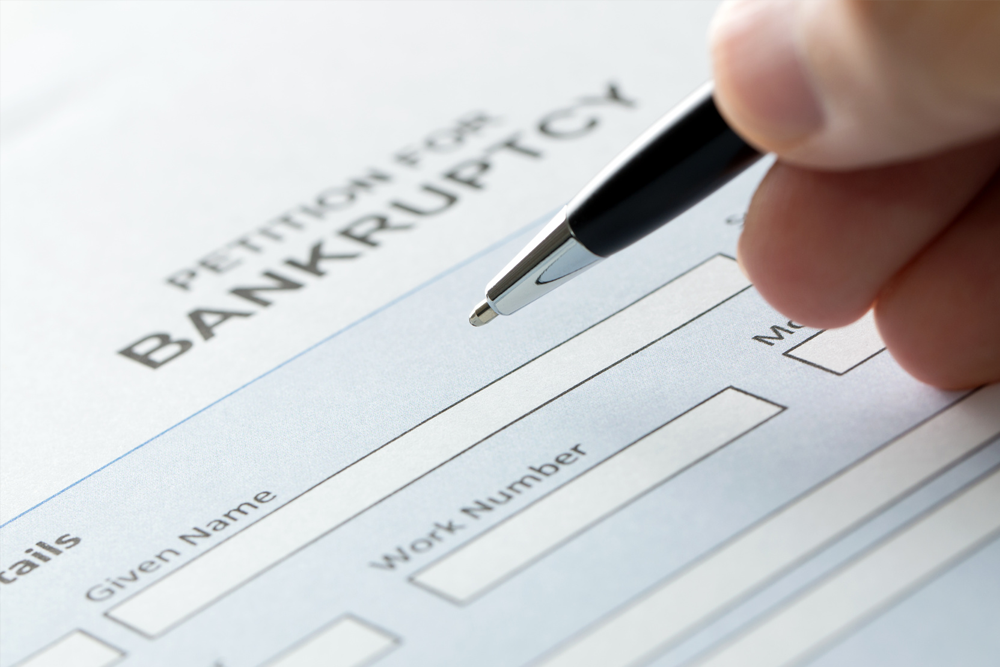How Long Is A UCC Filing Active & How Do You Remove It?
Suppose you have finally found a buyer for that used piece of construction equipment you have been trying to sell for months. Whereas the buyer is interested, he or she can not afford to buy the equipment outright with a single cash payment. Instead, the buyer is seeking to fund the transaction with payments overtime at the appropriate interest rate. You are agreeable to the repayment structure; however, you want to provide yourself additional security in the event that the buyer is unable to make the payments as a whole. You want to utilize the piece of equipment itself as collateral for the repayments so that you will be able to seize and sell the equipment in the buyer’s case of nonpayment. Congratulations, you have just become a creditor in a secured transaction.
One of the most significant elements of being a creditor in a secured loans transaction is the financing statement’s filing. Once you agree to the payment terms and enter a security agreement for the collateral, the creditor should file a UCC-1 financing statement in the appropriate state office to perfect the collateral’s security interest. UCC stands for uniform commercial code. A UCC-1 form is an appropriate means of perfecting security interests in all types of collateral. A UCC lien might arise when securing equipment financing, receiving trade credit for machinery, or when buying real estate.
This financing statement serves as a public notice to all third parties that this collateral is already subject to a security interest and that an existing creditor might have a right to seize and sell the collateral. Moreover, the appropriate financing statement is absolutely vital to protect the creditor’s interest in the event of the debtor’s bankruptcy. This post will discuss all you need to know about filing financial statements for equipment, including how long you have to file the statement.
In this article we will cover:
- What is a UCC-1 financing statement?
- How long is a financing statement for equipment active?
- Is it bad if someone files a financial statement against my equipment?
- How can I check if I have had a financial statement filed against me?
- UCC Purchase Money Security Interests Essentials
- UCC financing statement collateral descriptions
- UCC filings offer immense advantages for creditors
- How do I get rid of a UCC filing?
What is a UCC-1 financing statement?
A UCC-1 financing statement, sometimes known as a ‘UCC-1 filing,’ a ‘UCC lien,’ or simply a ‘UCC-1’—is a form that creditors use to create a lien against a debtor’s real property. But let us break that down a bit. In layman’s terms, it is essentially a document that offers your lender, bank, or other financial institution the right to seize some or all of your personal and business assets if you default on your loan or go bankrupt.
The primary purpose of a UCC financing statement is to notify lien creditors, ecured parties, purchasers, and other third parties that the secured party recognized in the financing statement claims an interest in the original collateral described in the filing. Thus, UCC financing statements are sometimes referred to as “notice filings” since they are not intended to offer the full details of the transaction to which they relate. However, instead, they are only designed to put other parties “on notice” that a transaction might affect the collateral covered by the financing statement.
In fact, when the drafters of Article 9 of the uniform commercial code ucc considerably rewrote the statute 20 years ago (the 2001 amendments were generally finalized in 1998), the drafters intentionally offered that ucc financing statements collateral description is sufficient if it “indicates” the collateral covered. Consistent with the idea of a notice filing, a demonstration of collateral necessary for a financing statement to perfect your security interest in the applicable collateral is a less stringent standard than an identification of collateral needed for the security interest to attach to the collateral and be productive between the debtor and the secured party.
How long is a financing statement for equipment active?
Usually, a blanket lien UCC-1 Financing Statement expires five years from the date and time it was filed, as indicated on the UCC-1 form. Nonetheless, if a loan extends beyond that duration, a lender normally files a “Continuation Statement” to renew the original UCC-1 filing for another five years.
Nonetheless, calculating the deadline to file a second, third, or even fourth) continuation statement sometimes results in confusion. The key to avoiding the confusion is to remember that a properly filed continuation statement continues in effect for five years from the date the financing statement would have otherwise lapsed—not five years from the date the continuation statement is filed. Since filings are limited to a six-month window, miscalculating the new period of effectiveness can cause the creditor to become unperfected when a second continuation is filed.
Sometimes a lender can renew their UCC-1 filing if they make a new loan to a company before the five years are up. The new loan makes the clock start rerunning its five years. When a lender changes ownership or names, it is usually normal to see an assignment using the filed financing Statement indicating the lender’s name and address change. Commonly, borrowers are not notified of these new filings. It is common for Small Business Administration (SBA) loans to be sold by the initial lender to another lender. Assignment Statements change the secured party name without interrupting their initial lien.
Is it bad if someone files a financial statement against my equipment?
Not really. A UCC lien is a standard part of any business loan that requires collateral. Having a financial statement filed against your business only limits you a bit because it prevents you from putting that equipment up as collateral for another loan. The most common event to perfect the security that needs prompt secured party action is a change in the debtor’s name. So it is very significant. If any of your debtors change their name, you want to be notified about that.
Note: as long as a debtor’s assets have a UCC lien filed against it, they are not allowed to sell, transfer, or use it as collateral for any other loan.
How can I check if I have had a financial statement filed against me?
Easy: simply select your state in the dropdown menu on this National Association of Secretaries of State (NASS) website and navigate your state’s UCC filing portal.
UCC Purchase Money Security Interests Essentials
The UCC search and filing procedure can be tricky to navigate and with many complexities to learn. People new to UCC generally have questions about purchasing money security interests in collateral, mainly what they are.
Following UCC section article 9, a purchase money security interest (PMSI) is a particular type of security interest that allows those who finance a debtor’s acquisition of goods to acquire a priority security interest in the purchase-money collateral. Even though another creditor holds an earlier perfected security interest, the PMSI secured creditors would take priority. A security interest in chattel paper might be perfected either by filing, UCC or by possession.
Typically a creditor has a security interest in collateral and becomes a secured party if a security interest attaches. PMSI’s are often utilized by a seller of goods to secure the prices and advance the money to enable the debtor to acquire the goods. However, it is essential to note that the super-priority for the PMSI secured party is limited to the good that they allowed the debtor to acquire. To qualify as a PMSI secured party, the party has to meet specific criteria. Eligible secured parties would be:
- Consigner of goods
- A lender that finances the acquisition of consumer goods
- Seller of goods
When it comes to leasing if a covenant in tie lease gives the lessor security interest in other debtor’s personal property to secure the rental obligation the (lessor granted a security interest in contracts and accounts receivable), the chattel paper will qualify as both lease chattel paper and security chattel paper.
UCC financing statement collateral descriptions
A proper description of collateral is a vital component of a sufficient UCC financing statement. In some respects, the guidelines are simple. Nonetheless, there are traps for the unwary lurking in the details. Errors or seriously misleading information in the financing statement collateral description or subsequent collateral amendments can prove costly for the secured party. As such, it is good to understand the fundamentals that describe the collateral.
Attaching and perfecting a security interest under the UCC
Here are the elements to consider when perfecting a security interest:
| Attachment | Typically a creditor has a security interest in collateral and becomes a secured party if a security interest attaches. Typically under the UCC, a security interest does not attach not unless three basic qualifications are met. |
| Value | A secured transaction is an agreement between the debtor and the secured party. |
| Control | The UCC denotes that a security interest in investment property, letter of credit rights, deposit accounts, or electronic chattel paper might be perfected by control of the security. |
| Security agreement | For the aim of attachment, the debtor must authenticate a security contract. |
| Perfection | A secured party perfects a security interest to help assure that no other party, like another bankruptcy trustee, can claim the same security in the event that the debtor becomes insolvent. |
UCC filings offer immense advantages for creditors
- UCCs establish priority in the machinery for the creditor and offer the creditor an opportunity to repossess the equipment upon the debtor’s default.
- In case of the debtor defaulting, the creditor can declare it in default and start repossession proceedings in the filing office.
- UCCs develop a public record of ownership of the assets in lease situations.
- In case debtors file bankruptcy, the bankruptcy trustee will search for UCC filings to figure out which assets belong to whom.
- Assuming the debtor defaulted, other secured lenders will know not to foreclose on the machinery.
- The security interest attaches to the machinery; thus, if the debtor were to sell the machinery without paying for it in total, the creditor will maintain priority right to the machinery.
On the negative side UCC fixture filing can affect your business credit report.
How do I get rid of a UCC filing?
If everything goes as planned and you pay back your loan successfully, the lender must file a UCC-3 financing statement to end the UCC lien. Nonetheless, it is not unheard of for careless lenders to forget to file a UCC-3, even after borrowers have repaid the full amount. This can create challenges if the borrower goes seeking for another loan. Remember, UCC-1 filings are active for five years, whether you have paid back the loan or not. In the event your lender forgets or otherwise fails to stop the lien, other lending institutions will see it when they look up your business in a UCC-1 database, and will less likely offer you financing.
It is wise to double-check with your state’s secretary of state’s office before applying for your next business loan to ensure you do not have any active UCC-1s.If you realize that you do, in fact, have an outstanding UCC-1 for a loan you have already paid off, contact the lender and request them to file a UCC-3 to get rid of the lien. If they do not comply, talk to a professional lawyer who understands the federal law and state laws.
Here are a few other things business owners should know about UCC filings:
- Be cautious about signing loan applications with commercial finance companies. Whereas it is unlikely you will ever experience this with a bank, commercial finance companies sometimes have language in the bottom paragraph of their loan application, permitting them to file a UCC-1 against the specific collateral. It is always up to you, the borrower, to read anything you sign.
- The rationale utilized by commercial finance companies is that they will sustain due diligence fees when assessing your loan application. Many companies are surprised when they find out that a finance company they never did business with has a UCC-1 filing against their business. To get these companies to terminate their filing, you will often have to pay them whatever they believe their due diligence costs were when you signed their loan application.
- Preference for UCC-1 Financing Statements is determined by their time or date stamp recorded at your State’s office. Some lenders (mainly where titled equipment is involved) only file UCC-1s specifically listing the particular equipment or motor vehicles being funded. Other UCC-1 Financing Statements cover all collateral. These are known as “blanket” assignments. When you have numerous UCC-1s filed against your business, they only conflict when they list the same collateral category. In such an event, the lender who filed their UCC-1 first is in the first position, and any other lenders with the same collateral are in second or third position. When two lenders that have UCC-1 filings against the same collateral work together, they usually have an inter-creditor or subordination agreement between them that specifies how they will “split up” or give up a specific class of collateral so they can both keep working with you.
Generally, there is nothing more frustrating than not being able to secure a loan for your business since you have a UCC-1 Financial Statement in place that slows down or prevents you from getting business credit. Since the cost of checking the UCC database is only a few dollars, it is advisable for every business owner to check for UCC filings periodically. Your UCC legal research results include UCC-1 financing statements, amendments, continuations, terminations, and other related records—the public records you require to make an accurate lending decision. Remember that even though a UCC-1 financing statement by itself is not anything to be concerned about, borrowing and repaying loans is a serious business.

